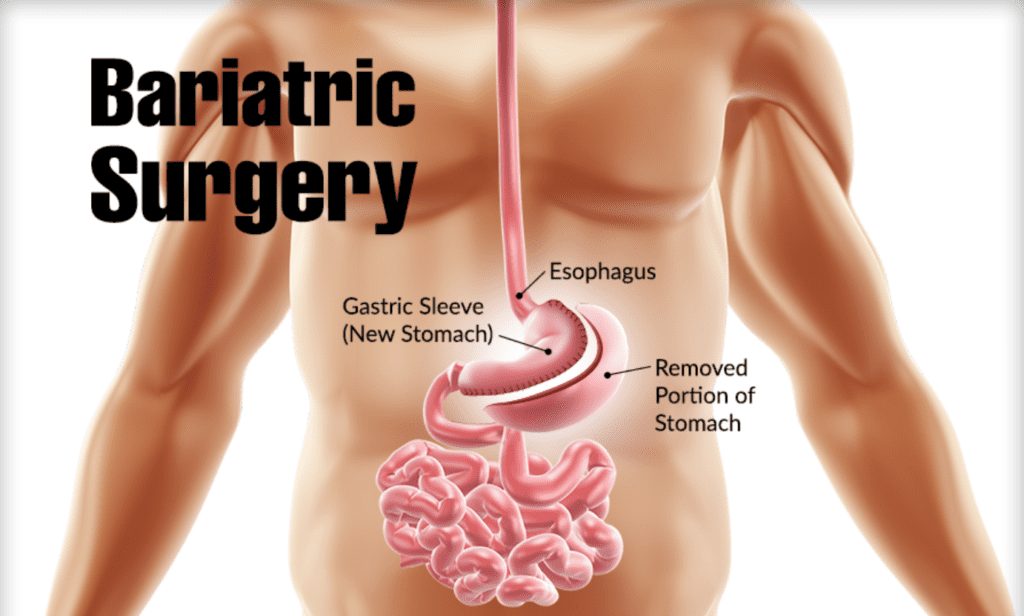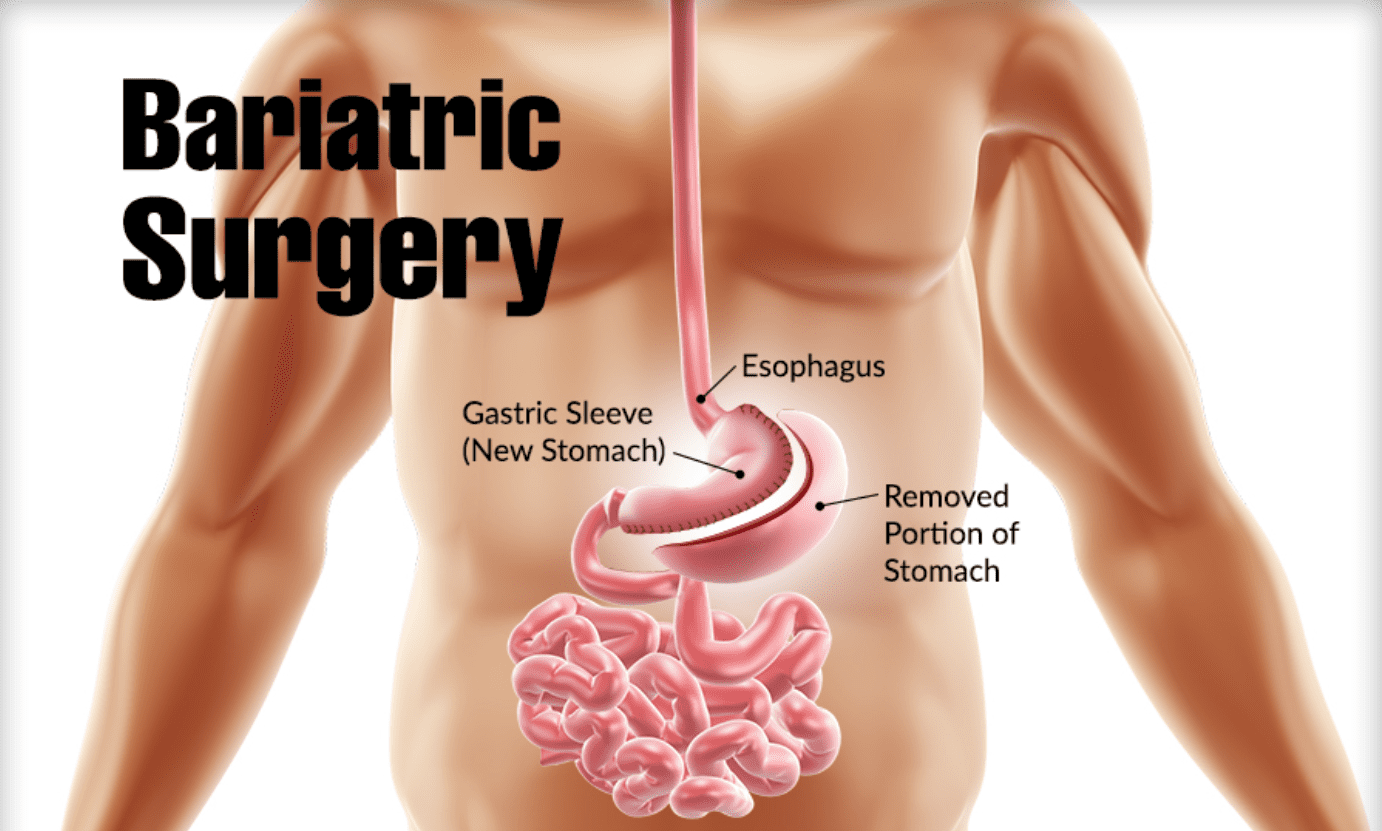
Obesity has become a global epidemic, thanks to industrial revolution and spurt in fast food chains! Today, many people are struggling with weight issues due to poor lifestyle and unhealthy eating habits. Obesity is a serious health risk that often acts as a catalyst for other conditions such as diabetes, cancer, hypertension, blood pressure etc. However, thanks to the progress of science, there is a solution out there!
Bariatric surgery is a scientific procedure that surgically helps people to reduce weight and sustain the weight loss. It uses natural means to restrict the food intake and also limit the absorption of food by the stomach. As a result, you end up feeling fuller and eat fewer calories.
CCS Newcastle Gastric Sleeve says the basic principle of bariatric surgery is to reduce the size of your stomach so as to limit food consumption and to slow down the digestion process. It also involves removing parts of digestive tracts to restrict the absorption of calories. With the help of these steps, the surgery is able to address the problem of obesity and trim the waistline.
This procedure is especially helpful for those people who have tried to reduce weight a number of times and have failed to either achieve their normal weight range or sustain the weight loss. Not only does bariatric procedure solve both these issues, but it also prevents the onset of many diseases that are associated with obesity.
Types of Weight Loss Surgery
There are two types of bariatric surgeries:
- Restriction: This type of surgery reduces the stomach’s capacity to hold food. As a result, it also reduces the number of calories the body can consume.
- Malabsorption: This procedure surgically contracts part of small intestines that reduce the number of calories and nutrients the body can absorb.
Based on these two principles, there are four common types of bariatric procedures:
- Gastric Bypass: As per experts at BayBariatrics.com, this is the most common type of procedure that reduces the size of your stomach’s pouch and makes it smaller. No bigger than an egg, this new stomach is connected to the small intestine, bypassing its upper portion.
- Sleeve Gastrectomy: This procedure removes 80% of the stomach. The remaining tummy is shaped like a banana.
- Laparoscopic Gastric Banding: An expandable band is surgically placed around the stomach’s upper portion. This creates a small pouch like gut with the remaining stomach below the band.
- Duodenal Switch with Biliopancreatic Diversion (BPD/DS): In this procedure, a tubular pouch is created by removing the stomach, bypassing a large portion of the stomach.
Suitable Candidate for Weight Loss Surgery
Weight loss surgery may seem like an easy option to get rid of all the excess weight, but not everyone can qualify for it. Here are certain conditions that an individual must fulfill to be eligible for this type of surgery:
- BMI (Body Mass Index) should be higher than 40 or the person should be extremely overweight, at least 100 pounds more than their normal weight range.
- The BMI range falls between 35 and 39.9 which is accompanied by other weight-related health conditions such as sleep apnea, hypertension, diabetes etc.
- All efforts to achieve the weight loss goal have been unsuccessful
Some people with BMI between 30 to 34 also qualify for this surgery if they are suffering from other weight-related issues.
Additionally, the candidate also has to go through a series of other evaluations to choose the best surgical option. This evaluation takes the following factors into consideration:
- Medical history and existing medical condition
- Psychological status
- History of nutrition and weight loss
The most important factor that plays a huge role in a person’s long-term success is their self-motivation. The surgery alone will not be able to deliver the results you are hoping for. The most successful combination is when the person makes permanent lifestyle changes that include dieting and exercising every day following the surgery.
Post Surgery Care
After the surgery, it is incredibly important to not regain all the weight that you lost through this process. If you want to maintain your weight loss results, you should consume a protein-rich diet with the least amount of carbohydrates.
Moreover, you would be required to stay on a liquid diet that includes soup, milk, broth, fruit juices etc. for the first few weeks. For the next two weeks up to a month, the person is allowed to have thick soups such as creamy yogurt, pureed fish etc. It is only in the second month that the person can start consuming solid diet. You can resume your normal diet after two-three months of surgery.
Busting Common Myths about Bariatric Surgery
Myth: It is a cosmetic procedure
Fact: This surgery is a complete medical procedure that is done to reduce the size of your stomach to reduce the food intake. The surgery also diverts the food from the stomach to the small intestine to reduce the food absorption. It helps in weight loss and prevents the risk of health conditions as a result of obesity that includes diabetes, joint pains etc.
Myth: You can avoid this surgery for addressing the problem of severe obesity by significantly transforming your lifestyle
Fact: People suffering from extreme obesity are in this condition because they are not consistent with their weight loss efforts. They are unable to maintain the long duration of controlled diet and regular exercise, thereby exposing them to the risk of prolonged obesity.
The surgery, on the other hand, makes their body biologically incapable of eating too much and help them reduce weight without putting too much effort.
Bariatric surgery is the answer when the question is related to the weight loss problem. Many people have found respite and have become strong advocators of this medical procedure because of the benefits.
However, the experts warn that even though this surgery does the job, it does not mean you can go back to your old unhealthy ways of eating recklessly and not exercising. To maintain the weight that you lost surgically, you would have to follow healthy eating practices and incorporate a routine of daily exercise.
